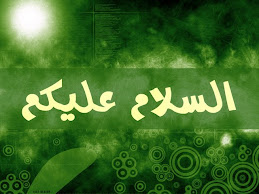
Allah the Exalted, has made the name of His Messenger clear in the Noble Qur’an. In Surah al-Fath, verse 129 Allah said:
قال الله تعالى (مُّحَمَّدٌ رَّسُولُ اللهِ وَالَّذِينَ مَعَهُ أَشِدَّاء عَلَى الْكُفَّارِ رُحَمَاء بَيْنَهُمْ)
It means: “Muhammad is the Messenger of Allah, and those with him
are severe against the blasphemers, and merciful among each
other.”
Also, Allah mentioned in the Qur’an that Prophet ^Isa, peace be upon him, informed his people about Prophet Muhammad sallallahu ^alayhi wa sallam. In Surah as-Saff, verse 6 Allah said:
قال الله تعالى إخبارا عن عيسى عليه السلام (وَمُبَشِّرًا بِرَسُولٍ يَأْتِي مِن بَعْدِي اسْمُهُ أَحْمَدُ)
It means: “And bringing the good news about a Messenger who will
come after me whose name shall be Ahmad.”
These are indications about the most famous names of the Prophet sallallahu ^alayhi wa sallam, Muhammad and Ahmad. “Muhammad” is the name which is repeated many times in the Qur’an, the name “Ahmad” was mentioned by Prophet ^Isa.
The scholars of Islam said that the Prophet was named “Ahmad” because he is the most grateful among thankful people. All of the prophets are grateful but our Prophet is the most thankful and grateful to his Creator.
As for the name “Muhammad” it is derived from the attribute of
“al-Hamd” which means thankfulness. The name “Ahmad” was mentioned in the earlier Divine Books, and the name “Muhammad” was mentioned in the Noble Qur’an. He was named Muhammad because he was thankful to Allah before any of his people did. Also, in the Hereafter he will thank Allah Who will grant him the intercession. Al-Bukhariyy related that the Messenger of Allah sallallahu ^alayhi wa sallam said:
قال رسول الله صلى الله عليه وسلم: "إن لي أسماء: أنا محمدٌ، و أنا أحمدُ، وأنا الماحي الذي يمحو الله بي الكفر، وأنا الحاشر الذي يحشر الناس على قدمي، وأنا العاقبُ الذي ليس بعده أحد" رواه البخاري
It means: “I have five names, I am Muhammad, I am Ahmad, I am
al-Mahi (The eraser) with whom Allah erases blasphemy, I am
al-Hashir whom people will be assembled after, and I am
^Aqib (the last of all of the prophets.”
In interpreting this hadith Ibn Hajar al-^Asqalaniyy said: “It appears that the Prophet meant that he had five names which no one before him was named with in the past nations.”
The scholars interpreted his saying “al-Mahi (the eraser) with whom Allah erases blasphemy”, that Allah would erase blasphemy in the Arabian Peninsula by Muhammad sallallahu ^alayhi wa sallam.
His saying “I am al-Hashir whom people will be assembled after” was interpreted by the scholars that he will be first one to be assembled and the rest of the creations will come after.
As for his saying: “I am al-^Aqib”, the scholars said that it means that our Prophet is the last of all the prophets. Prophet Muhammad sallallahu ^alayhi wa sallam is the last of all of the prophets and messengers. Neither there will be a new messenger nor a new prophet after him. This issue is unquestionable as it is mentioned in the Qur’an and in many hadiths. Al- Bukhariyy related that the Messenger of Allah sallallahu ^alayhi wa sallam said:
"لا نبي بعدي" رواه البخاري
It means: “There is no prophet after me.”
At-Tirmidhiyy also related that the Messenger of Allah sallallahu ^alayhi wa sallam said:
"لو كان بعدي نبي لكان عمر" رواه الترمذي
Which means: “If there were to be a prophet after me, it would be ^Umar.”
This hadith shows clearly two things: First that there will be no prophet after Prophet Muhammad sallallahu ^alayhi wa sallam, second it shows the high status of our Master ^Umar Ibnul Khattab may Allah raise his rank.
So for those who try to alter the meanings of the Qur’an and its verses, they have no foundation to their claims. Neither Ghulam Ahmad al-Qadyaniyy nor any other person is a new prophet.
After Prophet ^Isa peace be upon him descends, he will rule the Earth with the rules (Shari^ah) of Prophet Muhammad which Muslims are ordered to follow until the Day of Judgement.
We ask Allah to keep us on the straight path, grant us a good ending, assemble us with the best of the prophets sallallahu ^alayhi wa sallam, and to bestow on us the bounty of entering Paradise without torture.






